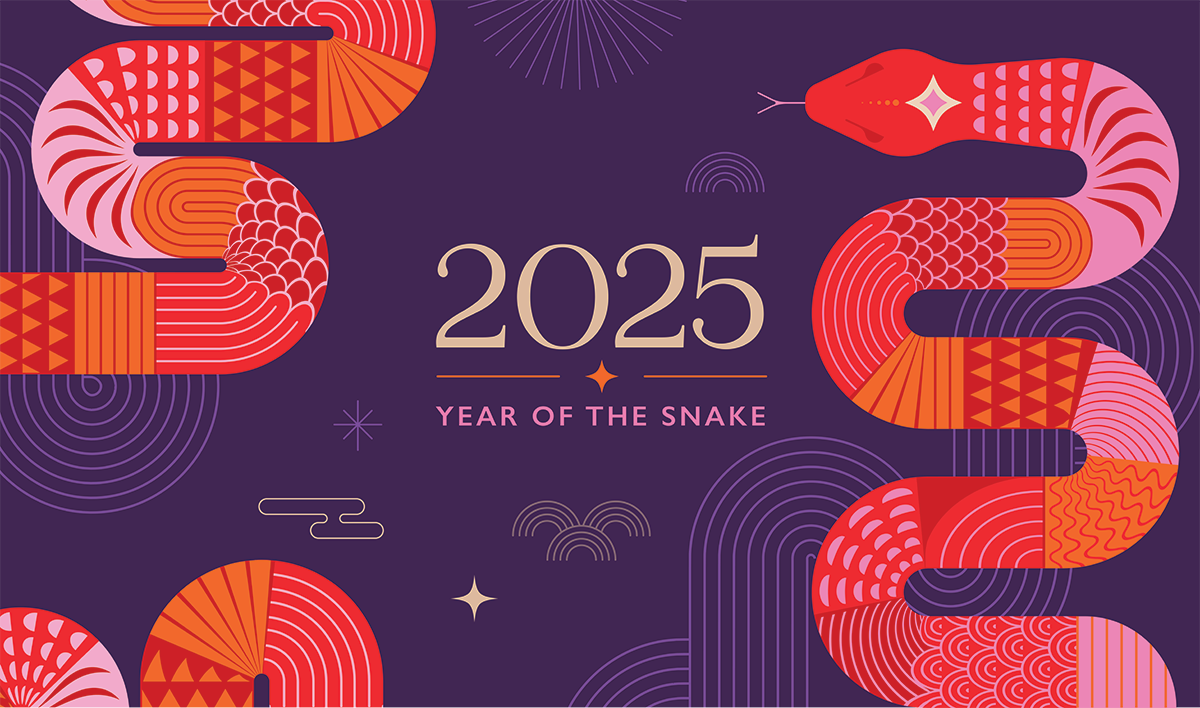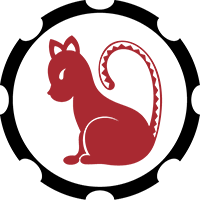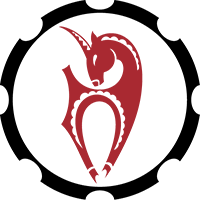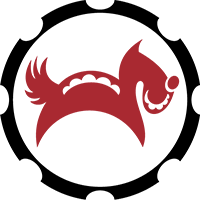Advertisement
Chinese Zodiac - Year of the Snake
Chinese horoscopes are intricately rooted in the Chinese calendar, which diverges significantly from the Western Gregorian calendar. While Western astrology emphasizes the precise time and date of birth, Chinese astrology places paramount importance on the year of birth as determined by the Chinese lunar calendar. This lunar calendar follows a 60-year cycle, further subdivided into five sub-cycles of twelve years each.
Within this framework, each year is represented by one of twelve animal signs—Rat, Ox, Tiger, Rabbit, Dragon, Snake, Horse, Goat, Monkey, Rooster, Dog, and Pig. Additionally, these years are associated with one of the five elements: Wood, Fire, Earth, Metal, and Water. The interplay of these animal signs and elements creates a unique and comprehensive system that is believed to influence an individual's personality traits, behaviors, and destiny.
This sophisticated blend of zodiac signs and elemental influences offers a rich and intricate perspective on character and fate, providing a compelling alternative to Western astrological practices. By considering both the animal sign and the element governing a particular year, Chinese horoscopes offer nuanced insights into a person's strengths, weaknesses, and potential life path. This dual-layered approach not only enriches the understanding of individual characteristics but also highlights the cyclical nature of time and its impact on human life, making Chinese astrology a profound and culturally significant tool for self-awareness and destiny exploration.
Within this framework, each year is represented by one of twelve animal signs—Rat, Ox, Tiger, Rabbit, Dragon, Snake, Horse, Goat, Monkey, Rooster, Dog, and Pig. Additionally, these years are associated with one of the five elements: Wood, Fire, Earth, Metal, and Water. The interplay of these animal signs and elements creates a unique and comprehensive system that is believed to influence an individual's personality traits, behaviors, and destiny.
This sophisticated blend of zodiac signs and elemental influences offers a rich and intricate perspective on character and fate, providing a compelling alternative to Western astrological practices. By considering both the animal sign and the element governing a particular year, Chinese horoscopes offer nuanced insights into a person's strengths, weaknesses, and potential life path. This dual-layered approach not only enriches the understanding of individual characteristics but also highlights the cyclical nature of time and its impact on human life, making Chinese astrology a profound and culturally significant tool for self-awareness and destiny exploration.
Year of the Snake
January 29, 2025 - February 17, 2026
The Year of the Wood Snake runs from 29th January 2025 to 17th February 2026. This is an especially long lunar year and with 13 lunar months, this will require a leap month, with the month of the Goat being repeated. The first month of the Goat will run from 25th June to 24th July, with the month of the Goat then repeated from 24th July to 23rd August.
On 29th January 2025, we will leave the Dragon and all its flamboyant ways and its love of drama behind and enter the steadier and more stable realm of the Year of the Snake.
Unlike the Dragon, which has a ‘look at me’ energy, the Snake prefers to operate behind the scenes, not so much in stealth, but in ways that on the surface aren’t obvious, until you find that he has been working diligently to steer you onto the right course. The Snake is wise intelligent, a strategic thinker and a problem solver. This is not a year for quick decision making or for making it up on the fly, with the more you can slow down, think things through and ponder for a while, the easier it will be to tap into the Snake’s wise influence and his deep insight and philosophical nature.
The Year of the Snake can be abundant and prosperous, partly because the Snake has a wily way with money and partly because of the Snake’s fondness for the finer things in life. Because the Snake is a problem solver and a goal setter, having a savings goal or working to have the money to buy what you want will be easier this year. The Snake will also meet you halfway, with the more you work to acquire the money or the means to get what you want, the more likely you are to attract.
Incomes could rise during the Year of the Snake, but as the Snake also likes the finer things in life, you might also find that you are spending more. Again, the Snake’s smart approach will make it easier to manage the balancing act between money coming in and money going out. The Snake will make you a lot better with money than in other years, but the saying ‘look after your money and it will look after you’, has never been truer.
The Snake is great at undercover work, and you will notice his influence in the things that aren’t immediately obvious. The Snake loves a good mystery and is always in the pursuit of knowledge, drawing you towards a new love or appreciation of reading, studying or learning through educational institutes or just from the school of life. Many mysteries could be solved during the Year of the Snake or new discoveries made, as things that have been in the dark come to life, both in our personal lives and on the world stage.
Where the Dragon raced through the heavens at lightning speed and next year the Year of the Horse will gallop across the landscape, the Snake slowly slivers. On the one hand, this is a year where things might not be happening as fast as in other years, but on the other hand, you won’t feel as rushed. This will give you time to ponder your options and keep your decision making open. That decision you make doesn’t have to be the final one, with the Snake giving you time to change your mind or tweak things once more information comes to hand.
Yet the Snake also likes to work undercover, behind the scenes and is like the proverbial duck, which appears to slowly glide while under the water its feet are furiously paddling against the current. This might create situations throughout the year where it looks like nothing is happening and then suddenly, things will fall into place.
The Year of the Snake is also a karmic year, a year when what goes around comes around and where what you do or don’t do will come back to you, whether actions or courses taken in the past or that you continue to take in real time. At the same time, because the Snake can shed his skin and emerge with a brand new one, this can be a powerful year for rebirth, transformation and for shedding the old in order to embrace the new.
The Snake is also perceptive and especially when it comes to reading others, making you a better judge of character and of who to align yourself with. Because the Snake is a social animal and prefers the company of others rather than flying solo, this is a year where friendship, teamwork, networking and group activities are favoured. You will feel at one with the Snake when you are part of a team and especially of like-minded souls. This makes it important to align yourself with the right people, for the Snake favours loyalty above all else.
Meanwhile, this isn’t just any old Year of the Snake, but the Year of the Wood Snake. The Wood Snake is bold, tenacious and he doesn’t give up. His motto is ‘where there’s a will there’s always a way’, ready to take big or small steps, seeing each one as a means to an end, all powered by a drive to achieve. The Wood Snake is also a dreamer but coupled with the drive to do whatever it takes for as long as it takes in order to turn those dreams into reality. You can achieve a lot this year, but the Wood Snake also likes to play.
It is during the month of the Snake, from 27th April to 27th May, that we will feel the full influence of the Snake, making this one of the highlight months of the year for all that the Snake represents. The Snake is part of a triad of affinity with the Rooster and the Ox, making these some of the better months of the year. When the lunar month and the lunar year are in harmony, life flows more smoothly, there are more opportunities, and these are considered lucky months. As well the month of the Snake, this will happen during the month of the Rooster from 21st September to 21st October and during the month of the Ox, from 18th January to 17th February 2026.
On 29th January 2025, we will leave the Dragon and all its flamboyant ways and its love of drama behind and enter the steadier and more stable realm of the Year of the Snake.
Unlike the Dragon, which has a ‘look at me’ energy, the Snake prefers to operate behind the scenes, not so much in stealth, but in ways that on the surface aren’t obvious, until you find that he has been working diligently to steer you onto the right course. The Snake is wise intelligent, a strategic thinker and a problem solver. This is not a year for quick decision making or for making it up on the fly, with the more you can slow down, think things through and ponder for a while, the easier it will be to tap into the Snake’s wise influence and his deep insight and philosophical nature.
The Year of the Snake can be abundant and prosperous, partly because the Snake has a wily way with money and partly because of the Snake’s fondness for the finer things in life. Because the Snake is a problem solver and a goal setter, having a savings goal or working to have the money to buy what you want will be easier this year. The Snake will also meet you halfway, with the more you work to acquire the money or the means to get what you want, the more likely you are to attract.
Incomes could rise during the Year of the Snake, but as the Snake also likes the finer things in life, you might also find that you are spending more. Again, the Snake’s smart approach will make it easier to manage the balancing act between money coming in and money going out. The Snake will make you a lot better with money than in other years, but the saying ‘look after your money and it will look after you’, has never been truer.
The Snake is great at undercover work, and you will notice his influence in the things that aren’t immediately obvious. The Snake loves a good mystery and is always in the pursuit of knowledge, drawing you towards a new love or appreciation of reading, studying or learning through educational institutes or just from the school of life. Many mysteries could be solved during the Year of the Snake or new discoveries made, as things that have been in the dark come to life, both in our personal lives and on the world stage.
Where the Dragon raced through the heavens at lightning speed and next year the Year of the Horse will gallop across the landscape, the Snake slowly slivers. On the one hand, this is a year where things might not be happening as fast as in other years, but on the other hand, you won’t feel as rushed. This will give you time to ponder your options and keep your decision making open. That decision you make doesn’t have to be the final one, with the Snake giving you time to change your mind or tweak things once more information comes to hand.
Yet the Snake also likes to work undercover, behind the scenes and is like the proverbial duck, which appears to slowly glide while under the water its feet are furiously paddling against the current. This might create situations throughout the year where it looks like nothing is happening and then suddenly, things will fall into place.
The Year of the Snake is also a karmic year, a year when what goes around comes around and where what you do or don’t do will come back to you, whether actions or courses taken in the past or that you continue to take in real time. At the same time, because the Snake can shed his skin and emerge with a brand new one, this can be a powerful year for rebirth, transformation and for shedding the old in order to embrace the new.
The Snake is also perceptive and especially when it comes to reading others, making you a better judge of character and of who to align yourself with. Because the Snake is a social animal and prefers the company of others rather than flying solo, this is a year where friendship, teamwork, networking and group activities are favoured. You will feel at one with the Snake when you are part of a team and especially of like-minded souls. This makes it important to align yourself with the right people, for the Snake favours loyalty above all else.
Meanwhile, this isn’t just any old Year of the Snake, but the Year of the Wood Snake. The Wood Snake is bold, tenacious and he doesn’t give up. His motto is ‘where there’s a will there’s always a way’, ready to take big or small steps, seeing each one as a means to an end, all powered by a drive to achieve. The Wood Snake is also a dreamer but coupled with the drive to do whatever it takes for as long as it takes in order to turn those dreams into reality. You can achieve a lot this year, but the Wood Snake also likes to play.
It is during the month of the Snake, from 27th April to 27th May, that we will feel the full influence of the Snake, making this one of the highlight months of the year for all that the Snake represents. The Snake is part of a triad of affinity with the Rooster and the Ox, making these some of the better months of the year. When the lunar month and the lunar year are in harmony, life flows more smoothly, there are more opportunities, and these are considered lucky months. As well the month of the Snake, this will happen during the month of the Rooster from 21st September to 21st October and during the month of the Ox, from 18th January to 17th February 2026.











